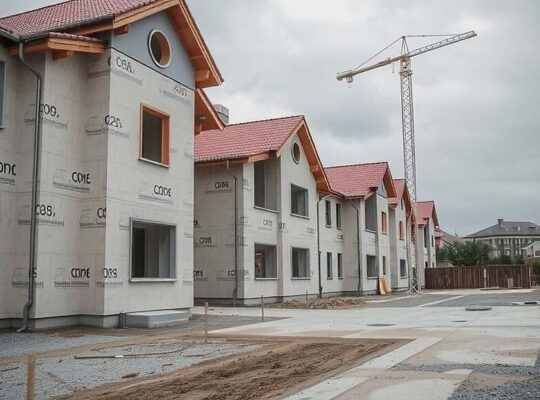German District Leader Calls for Rental Caps
A leading figure in German local government is escalating the debate surrounding housing affordability and the ongoing welfare reform, proposing strict rental limits for properties financed by the Jobcenter, the government agency responsible for administering unemployment benefits.. Achim Brötel, President of the District Council, voiced his concerns in an interview with the Redaktionsnetzwerk Deutschland, arguing that the current system is being exploited to the detriment of vulnerable citizens.
Brötel’s critique centers on what he describes as “scandalous” practices, alleging that existing loopholes and bureaucratic processes are being deliberately manipulated to enrich landlords at the expense of Jobcenter recipients. He frames the situation as a systemic problem, pointing to the prevalence of dilapidated, low-quality housing – often referred to as “scrotimmobilien” (literally “scrap properties”) – commanding inflated rents that are ultimately subsidized by the state.
“The Bürgergeld reform must also provide an answer to the handling of exorbitant rents in so-called scrap properties” Brötel stated. He suggests a concrete solution: capping the amount the Jobcenter will cover per square meter or per apartment. Currently, the system only addresses these exorbitant costs in exceptional circumstances, leaving many recipients vulnerable to exploitative landlords.
The proposal highlights a growing tension between welfare obligations and the realities of the German housing market, particularly in urban areas where demand outstrips supply. While designed to ensure basic needs are met, the Jobcenter’s rental assistance program inadvertently subsidizes the upkeep of substandard housing and creates a perverse incentive for landlords to inflate prices, knowing the state will bear a significant portion of the cost.
Brötel’s call for rental caps isn’t without potential complications. Critics may argue the measure could discourage landlords from maintaining poorly performing properties, further exacerbating the shortage of affordable housing. Furthermore, setting an appropriate cap that balances affordability with landlord incentives presents a complex policy challenge.
Nevertheless, Brötel’s intervention injects a critical edge into the ongoing debate surrounding the Bürgergeld reform, forcing policymakers to confront the uncomfortable realities of housing exploitation and its impact on the most vulnerable members of German society. The proposal underscores a growing recognition that social welfare programs require more robust oversight and proactive measures to prevent their unintended consequences from disproportionately benefiting unscrupulous actors.












